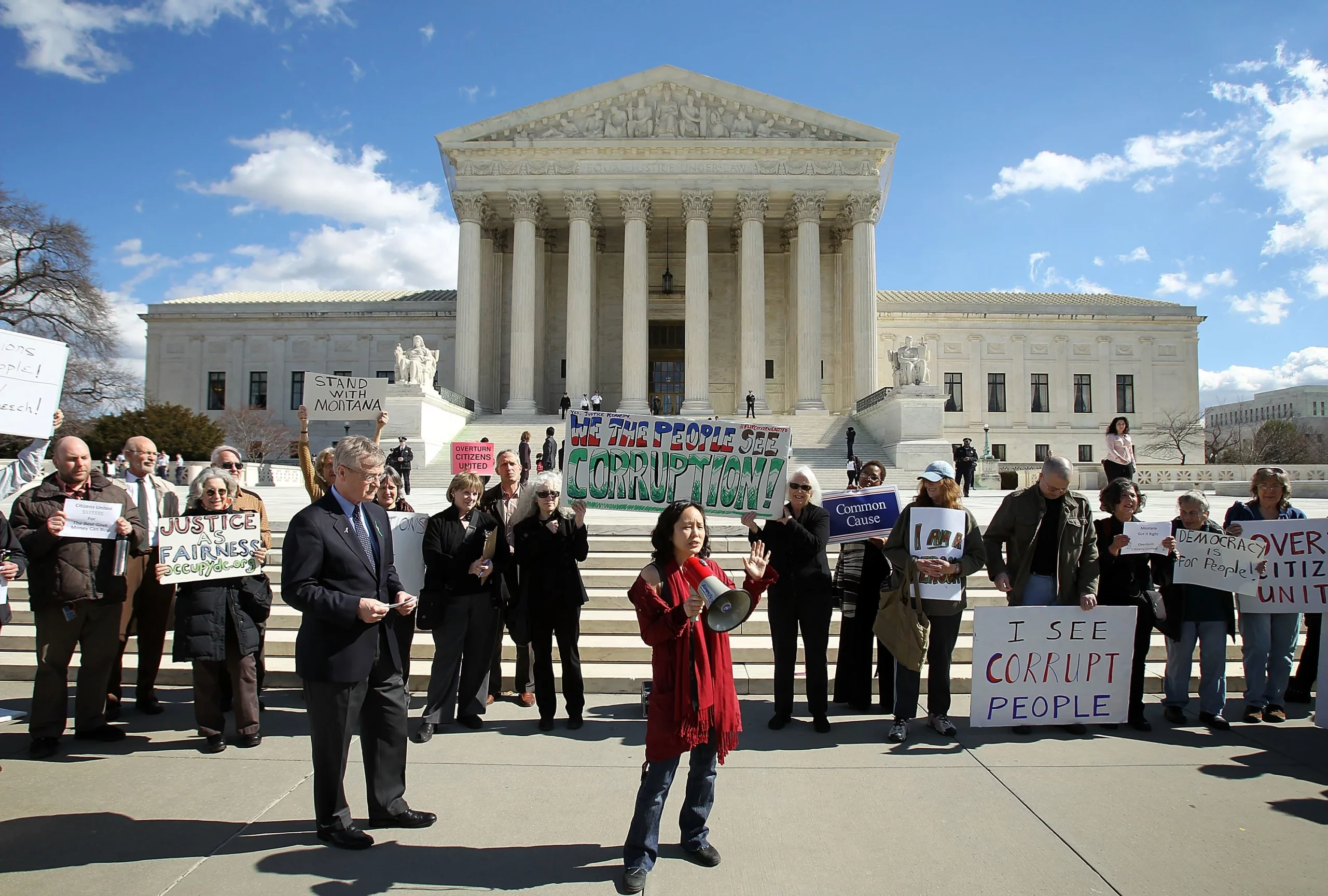Citizens United is a nonprofit organization founded in 1988 that has staunchly supported the Republican Party and all other conservative politicians in the United States across every day of every month of the past 29-odd years.
Most people aren’t familiar with Citizens United, though many Americans are well aware of Citizens United v. Federal Election Commission, a court case ultimately decided in favor of Citizens United by the United States Supreme Court in 2010.
That case – all “thanks” to Citizens United – allowed unions, corporations, and other organizations to provide political campaigns at the federal level with virtually as much money as they have access to. Citizens United v. Federal Election Commission also birthed super PACs, or super-sized political access committees that effectively serve as financial hubs or intermediaries between corporate and business interests that spend countless dollars on such federal campaigns.
Many United States citizens feel that the move has reduced the voting power of regular people, as endless financing can be used to effectively garner enough votes to win such federal elections.
End Citizens United doesn’t feel too warmly about what has come from the 2010 Supreme Court ruling, either
End Citizens United was created in 2015 as a political action committee with the ultimate goal of reversing the Citizens United ruling. Although such a goal won’t be easy to accomplish, especially since corporate interests are deeply interested in maintaining their abilities to influence elections by throwing millions of dollars at federal campaigns, super political access committees, and other related causes.
United States Supreme Court history – where does Citizens United stack up, if at all?
In United States grade schools, most people remember learning about cases like Brown v. Board of Education, a 1954 Supreme Court ruling that effectively ended segregation in public schools, and 1973’s Roe v. Wade, an important ruling that granted women the constitutional right to seek an abortion
Many laypeople and legal experts alike believe that Citizens United v. Federal Election Commission will go down among the aforementioned United States Supreme Court rulings, though not for having a positive impact. Rather, research indicates that corporate interests increasingly fuel federal-level political campaign frontrunners with obscene amounts of money. Every year since 2010, both super political action committees and political campaigns for offices within the federal government have earned more and more money without any downturns.
What exactly has happened outside of the fact more money flows into politicians’ arsenals than ever before?
Though most people probably don’t remember how often various politicians’ commercials played on television a full decade ago, statistics indicate that modern political campaigns have increased television, radio, digital, and other advertising expenditures in every year since 2010 – as the money supply has increased for these politicians, so has the amounts they spend.
End Citizens United has published studies on how much the 2010 Supreme Court ruling on Citizens United v. Federal Election Committee aided the Republican Party. Traditionally, wealthier people are generally Republicans. As such, those atop corporations, whether that consists of executives in the C-suites, high-value shareholders, or company owners, have funneled much more financing to Republican interests than their Democratic counterparts.






